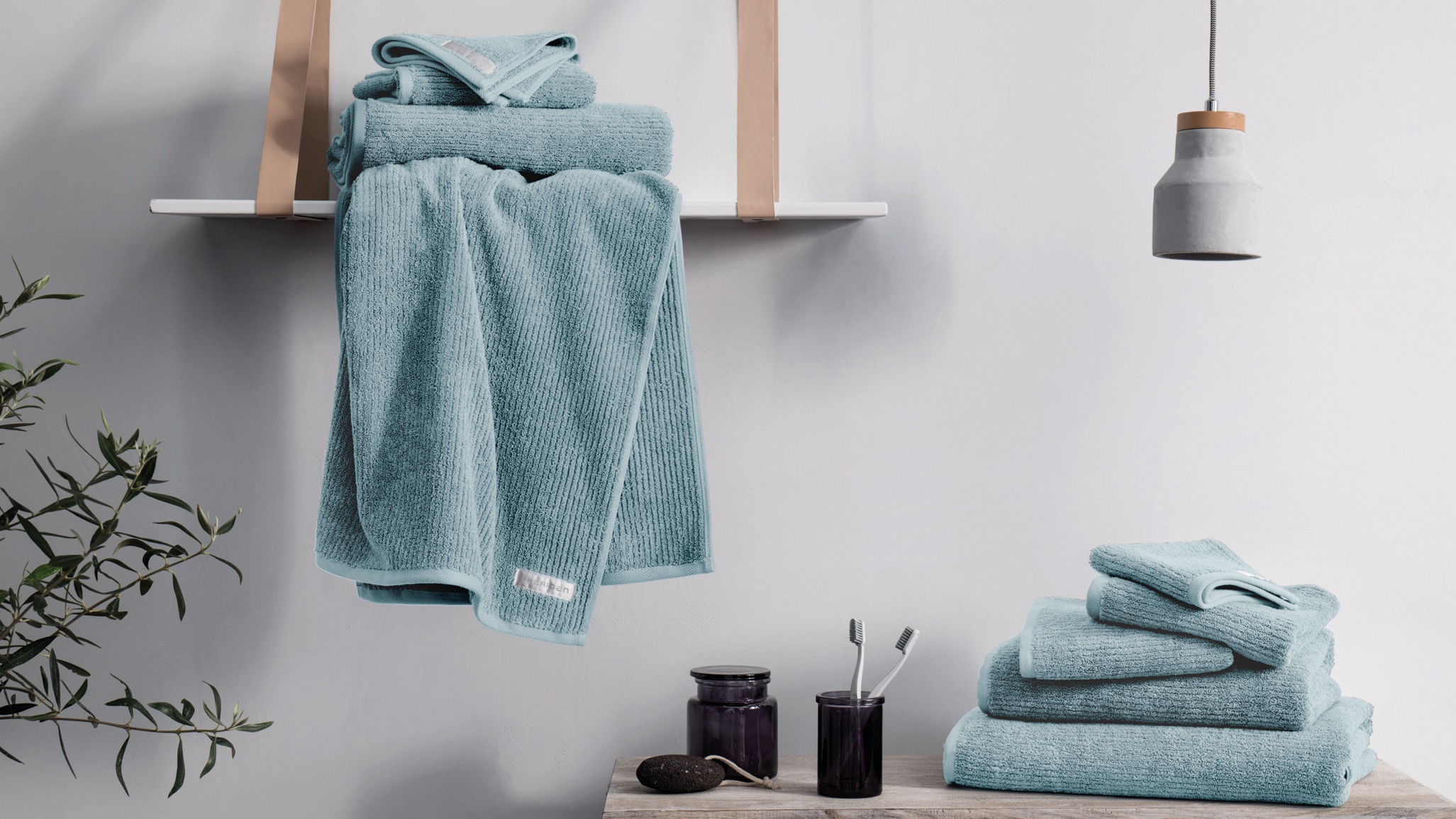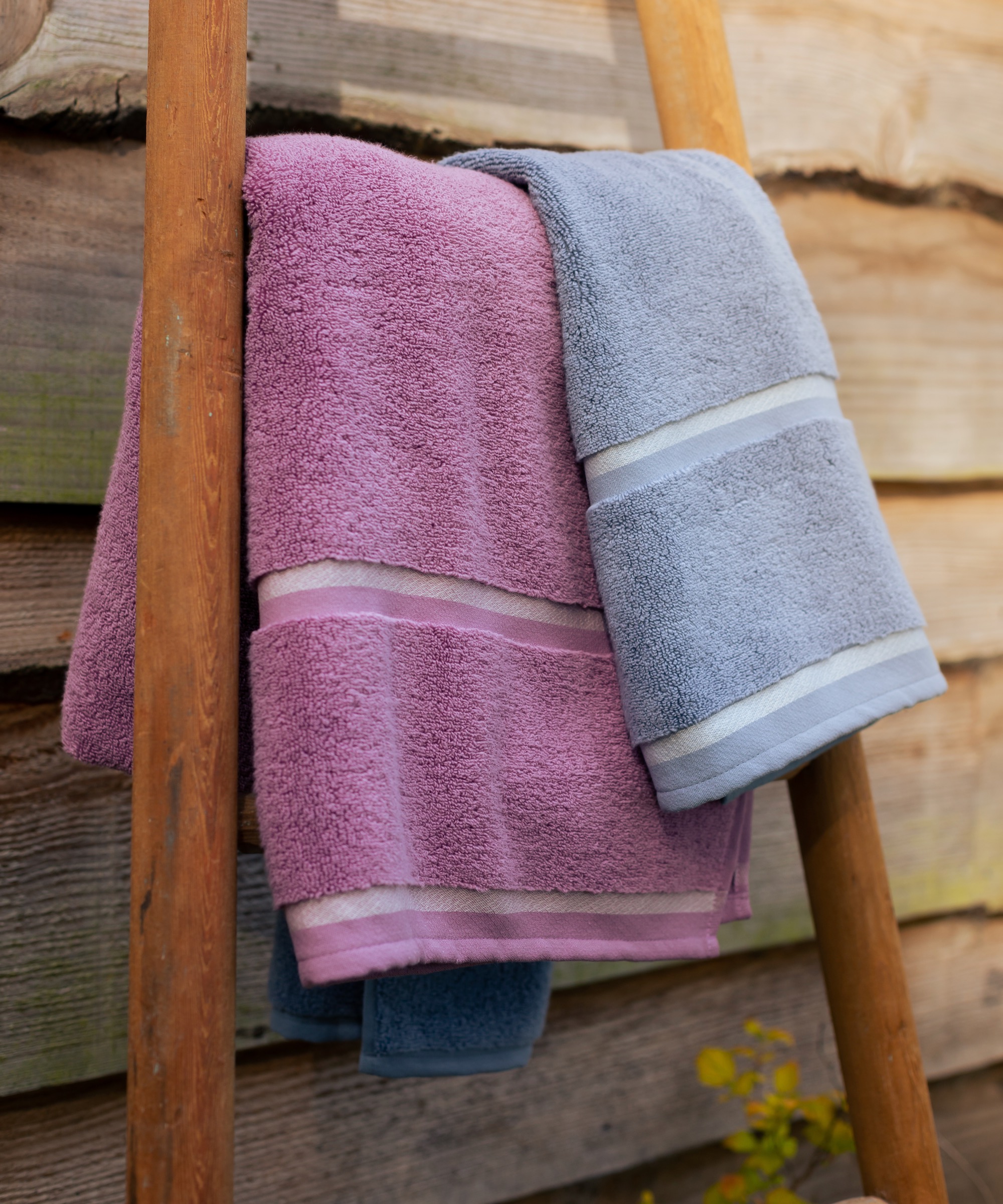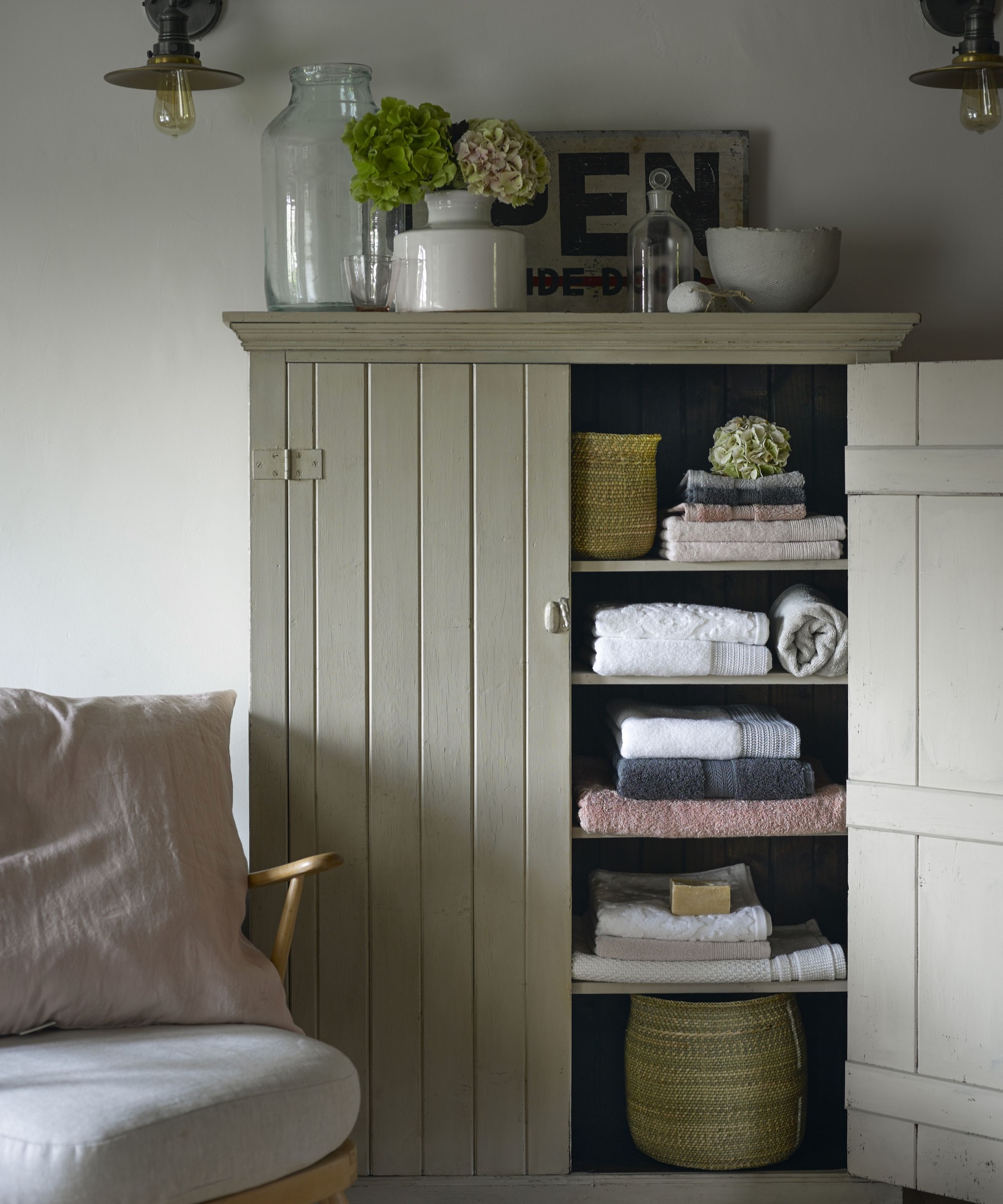Should you use fabric softener on towels? Experts give the definitive answer
It's been debated for decades, but is it really a good idea to add softener to the cycle where towels are concerned?


Keeping towels as soft as the day you bought them feels like the ultimate laundry challenge, ahead even of not shrinking a favorite sweater and remembering to empty every pocket pre-wash. But should you use fabric softener on towels?
When it comes to knowing how to wash towels the right way, there will always be some debate. But when we reached out to towel experts, they were all in agreement about the use of fabric softener.
Well, mostly.
Should you use fabric softener on towels?

Most towel experts would agree that it's a bad idea to use fabric softener on towels regularly, as it will decrease their absorbency over time.
'I always avoid using silicone-based fabric softeners and conditioners as these will repel water and will reduce the absorbency and fluffiness of the towels,' confirms Joanna Ross, general manager of design at Sheridan.
'When overused, the silicone in softeners and conditioners will build up as a coating on your towels, leaving them feeling slick and non-absorbent,' agrees Lucy Ackroyd, head of design at Christy.
Unfortunately, silicone is found in most fabric softeners (though it's sometimes listed as Polydimethylsiloxane, Trimethylsiloxysilicate or Siloxane). Its job is to keep fabrics soft, lubricated and static-free. By doing so, materials are less likely to rub together in the wash cycle, which means they are less likely to pile, become damaged, or lose their color.
If you are looking for a 'natural' fabric softener that won't damage your towels (or, indeed, add more chemicals to the water supply), try using white vinegar in your laundry. It can make your towels feel softer without adding a coating, and will leave them smelling surprisingly fresh – and not of vinegar!
Is it ever a good idea to wash towels with fabric softener?
'While I'd advise not to put fabric softener on towels regularly because it can decrease the absorbency, I wouldn't rule it out completely,' says Lucy Ackroyd. 'Once in a while – maybe every four or five washes – add a small amount of fabric softener in with the towels.'
'Don't add the full measure given on the bottle label – I'd add possibly half or a third of what it tells you. That will be enough to help to condition the fibers in the cotton.'
What's the best detergent to use on towels?
Aside from using little to no fabric conditioner on your towels, another laundry lesson is that your choice of detergent can help you keep your towels softer for longer.
'A simple way to keep towels super fluffy, is to wash them with a eucalyptus-based detergent,' says Christy's Lucy Ackroyd. 'Not only will this leave them smelling super fresh, the eucalyptus will also protect the fibers of the towel and ensure the colors stay bright and fresh.'
You could also add a few drops of eucalyptus essential oil to your wash to condition your towels. You can buy Handcraft Eucalyptus Essential Oil on Amazon.
Why you should always wash towels when you first use them

Fabric softeners should be handled with caution once you get your towels home. Yet rather ironically, they can be a big part of towel production.
'Nearly all new towels are coated with softeners that are often used during the finishing process, which provides that extra-fluffy look that you see at the store,' Jessica Hanley, founder of Piglet in Bed. 'This coating can restrict the absorbency of your towels, so it’s best practice to wash them before your first use.'
Washing your towels as soon as you bring them home from the store also helps with lint build up.
What else can I do to keep my towels soft?

Our guide to how to soften towels features plenty of tricks to try. But here are three quick tips from our experts:
- Wash at 86 to 04℉ only. According to laundry brand Downy, 'Cotton is a very soft, cellulose fabric, which reacts to high heat by flattening out and becoming hard'. It recommends 'choosing a medium heat setting to preserve your towels fibres and softness. Occasionally, you can run your towels through a 140℉ wash to get rid of bacteria and potential mould, but generally, stick to lower temperatures.'
- Never put towels directly on a radiator to dry. 'Always use a clothes horse when drying indoors,' says Lucy Ackroyd. 'Drying towels on a direct heat source clumps the fibers, causing your towels to go hard.'
- Fluff up your towels before hanging them out to dry. 'If you are line drying, a quick shake before and part way through helps to increase the softness and fluffiness of the towel,' says Lucy.
Sign up to the Homes & Gardens newsletter
Design expertise in your inbox – from inspiring decorating ideas and beautiful celebrity homes to practical gardening advice and shopping round-ups.

Amy Cutmore is Editor-in-Chief, Audience, across Future's Homes portfolio. A homes and interiors journalist of 20 years standing, she has spent much of that time writing about technology, appliances and kitchens. While other people count how many countries they've visited, Amy tots up how many countries' washing machine factories she's toured (it's eight by the way, from South Korea to Slovenia). She can't leave the house without a decent pair of noise-cancelling headphones, and is always ready to explain an acronym – be it QLED, DAB or HDMI.
-
 Nectar vs Layla – which mattress brand is best on test?
Nectar vs Layla – which mattress brand is best on test?I've set the Nectar Premier Hybrid Mattress and the Layla Hybrid Mattress head to head to help you work out which mattress meets your needs
By Emilia Hitching Published
-
 Barack and Michelle Obama's neutral accent chair is the perfect living room focal point – you can recreate their serene style in any-sized home
Barack and Michelle Obama's neutral accent chair is the perfect living room focal point – you can recreate their serene style in any-sized homeThis designer-approved essential fits into every modern living room – it's beautiful enough to stand alone, while pairing well with your favorite cushion
By Megan Slack Published